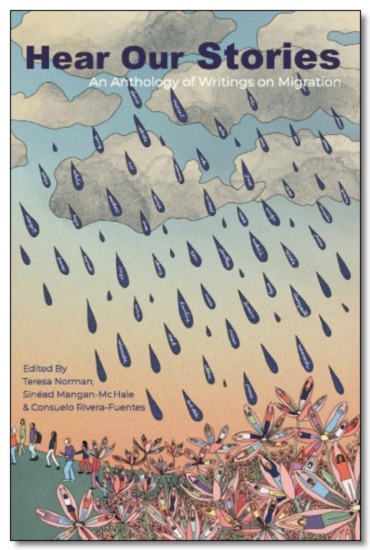Reviews of Hear Our Stories

“The only difference between you and me is a passport.”
These are the heartfelt words of many migrants and refugees seeking freedom and safety. For many, a passport is simply a means to travel, but for millions of migrants and refugees, a passport represents freedom, the right to live and work in other places and a better way of life.
It is the golden ticket they need to live, to really belong. Hear Our Stories is a collection of poetry and prose about despair, hope, sadness, gratitude, and a sense of relief told by those who journey to the UK looking for a better life – the opportunity to be themselves, to connect with relatives and families or to work and grow.
Description
These are the heartfelt words of many migrants and refugees seeking freedom and safety. For many, a passport is simply a means to travel, but for millions of migrants and refugees, a passport represents freedom, the right to live and work in other places and a better way of life.
It is the golden ticket they need to live, to really belong. Hear Our Stories is a collection of poetry and prose about despair, hope, sadness, gratitude, and a sense of relief told by those who journey to the UK looking for a better life – the opportunity to be themselves, to connect with relatives and families or to work and grow.
The Editors
Teresa Norman
This anthology feels to me like a culmination of so much of my working and academic life. In the 1980s, I studied English Literature at St. Andrews. I gained insight into how literature helps you live, through giving you insight. It also taught me how to create a structure that tells a story. For over ten years, I have worked in diversity – this has made me aware of the importance of hearing different voices and creating a platform for those voices. This is what the Anthology has done. I believe my talent to be an unusual one, it is to facilitate the talent of others. I am proud of the creativity, quirkiness and literary quality of the authors in the book and that I have played a role in bringing them to publication.

Sinead Mangan-Mc Hale
Working in the corporate world as both a writer and an editor, I communicate the pros and cons of energy, real estate, financial planning, and so many more diverse commercial products and services, but working on this anthology gave me the greatest joy. Volunteering with TogetherintheUK enables me to use my writing skills to share migrant and refugee stories to show that we all have the same hopes and dreams for ourselves and our families. As an editor, my role is not to rewrite but rather to enhance the story; to bring an extra layer of depth to the stories the author is conveying. Against all my professional training, in this anthology, I have left much of the writing as the authors intended; with grammatical errors ignored as we, TogetherintheUK and Victorina Press, sought to share the stark honesty of the authors’ stories. To edit their words would have been to rewrite their experiences, to disguise their pain, sorrow, loneliness, hope, joy, or the discrimination they face. We TGIUK 156 want and need you, the reader, to hear their stories as they told them and lived them. As a migrant myself, the stories resonated deeply with me. I did not experience a dangerous, abusive journey, but the sadness of leaving my family remains in my heart even after many years. We may never resolve the causes behind the rise of refugees and migrants, but we can always offer a smile and words of encouragement to those we meet.

Consuelo Rivera-Fuentes
The publishing world, artificially, divides books into fiction and non-fiction. But for me, all literary genres use strategies to express truths and realities of human, animal and environmental nature. The spider’s web which makes us co-evolve as we read and write has, since childhood, wrapped me with strong threads which have dressed my travels. In 2017 I embarked on a new cobbled path of books when I founded the publishing house Victorina Press, which is named after my mother. This new journey – like all others I have done as a teacher, writer, and editor – is strongly rooted in Pachamama and in Chile, my motherland, where volcanoes throw ardent kisses to rivers, mountains, deserts, seas, and forests. I am an academic, but I like that public space of loitering where I can unleash my creativity. I have been part of several creative writing groups because I like to read, write and ‘to memory’ in solidarity and accompanied, although I also give myself time to be alone with myself. This has resulted in several books of poetry and narrative. In my books of poetry entitled La TGIUK 158 Liberación de la Eva Desgarrada (1990) and Arena en la Garganta (2010) I try to face that grit that scrapes my throat and my voice when I tell in metaphors what happens through my body now, during and after the torture to which I was subjected in Chile in 1983.
